Bitcoin (BTC) starts the last week of January in fine form after sealing its highest weekly close in five months.
Despite opposition, the largest cryptocurrency is holding on to its newfound strength and continues to surprise market participants.
This is no mean feat — market sentiment has plenty to spook it and initiate a rethink among investors. Macro conditions remain uncertain, while within Bitcoin, research has highlighted whales on exchanges potentially moving prices artificially with huge amounts of liquidity.
Nonetheless, Bitcoin has seen its most impressive gains percentage-wise in over a year, and hopes remain that the good times will endure. What could that depend on?
Cointelegraph takes a look at some of the major factors to keep in mind as a January unlike any other draws to a close.
Bitcoin analysts bank on “continuation” to come
It is no secret that Bitcoin is facing its fair share of suspicion as it delivers 40% gains over just three weekly candles.
Demands for a major correction and continuation of the bear market have long been public, and some of the more conservative trading voices insist that macro lows are not yet in.
That inflection point has still not materialized, however. At its latest weekly candle close, BTC/USD traded at just above $22,700, marking its best performance since last summer.
Thereafter, the pair consolidated into the start of Monday, likewise retaining ground recovered over the week.
“Lows swept, juicy highs above, would be the perfect time to put in a nice running flat before continuation up,” trader Credible Crypto summarized about the short-term outlook.
Credible Crypto’s is characteristic of some of the more bullish takes on the market, less concerned by the idea that the whole move may simply be a relief rally within a broader bearish structure.
“Total market capitalization broke through the 200-Day EMA,” a similarly optimistic Michaël van de Poppe, Cointelegraph contributor and CEO of trading firm Eight, added at the weekend, referring to exponential moving averages.
“Good signs for crypto, as continuation seems likely. In between continuation to $25K or a correction to $19.5K. To continue -> hold above 200-Day EMA and break resistance. 200-Day EMA potential entry point.”
The 200-day EMA stood at $21,056 at the time of writing, according to data from Cointelegraph Markets Pro and TradingView.
More conservative appraisals of the situation focused among other things on exchange order book composition.
In its latest analysis, Material Indicators noted BTC price action rising and falling as major area of bid liquidity came and went on Binance.
“The BTC buy wall at 20,200 has been moved to push price up to test resistance on the trend line,” part of commentary stated.
“I don’t trust this entity at $22k any more than I did at $20k, but happy to trade in their wake.”
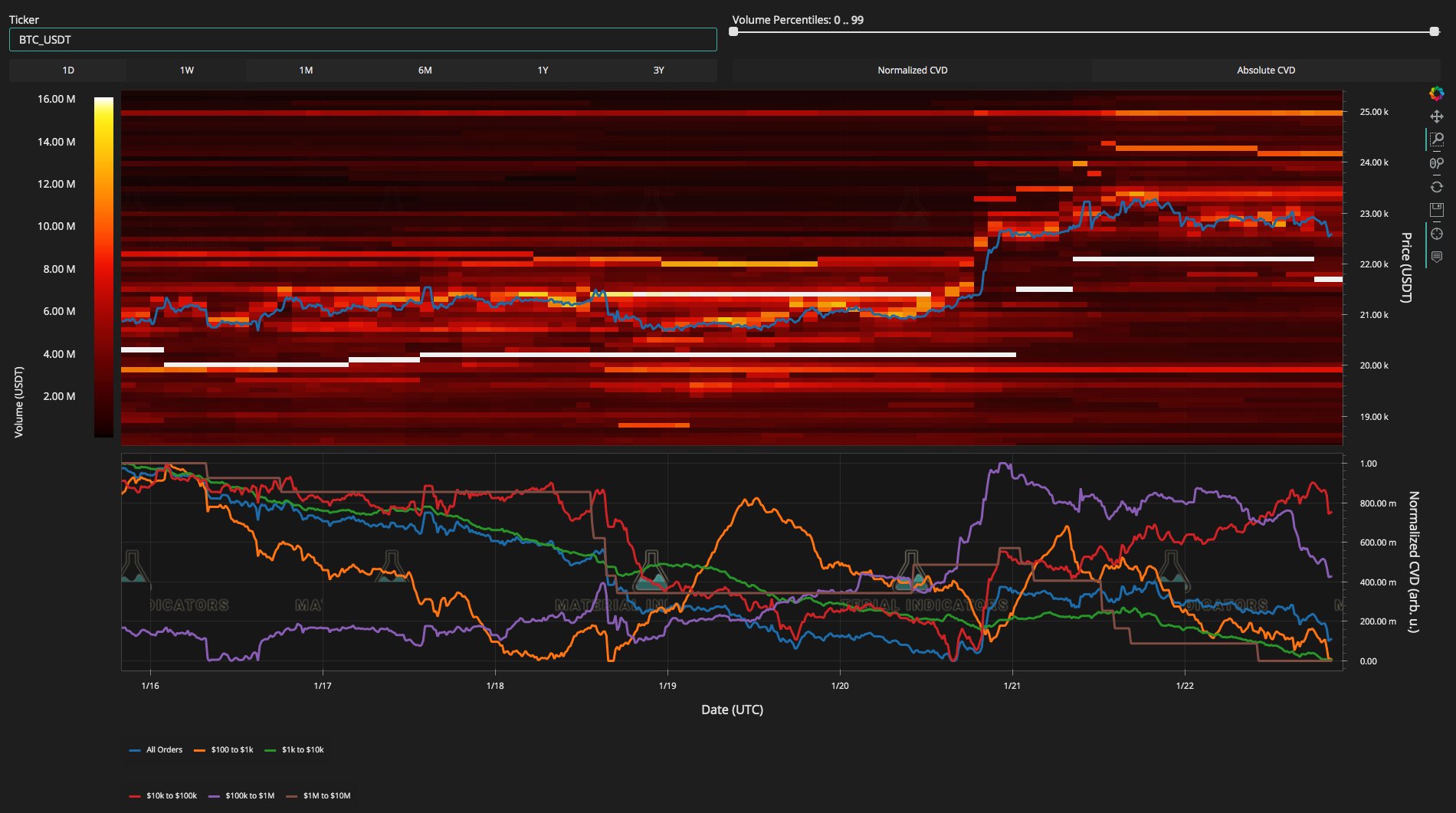
A further post doubled down on a previous assertion that price action was being “choreographed” and giving no attention to surrounding industry news, notably the bankruptcy of crypto lending firm, Genesis Trading.
“Fundamentally nothing has changed, yet BTC is testing macro level resistance. Meanwhile, some of the largest institutions in crypto are headed for bankruptcy. Probably nothing,” Material Indicators tweeted.
Macro optimism creeps back in
Macro analysis shows a similar split among those involved in crypto markets themselves.
With the United States Federal Reserve’s latest decision on interest rate hikes due Feb. 1, sources are reading into falling inflation in increasingly diverging ways.
Meanwhile, the 2023 World Economic Forum, despite some crypto opposition, failed to dent sentiment significantly.
For Dan Tapiero, founder and CEO of 10T Holdings, it is simply a question of how bullishly risk assets will respond to changing tides at the Fed as it loosens monetary policy in future.
“How will Fed respond when inflation goes below 0? A long good year coming for BTC ETH gold,” he told Twitter followers.
“USD bear mkt and 10yrs below 3% to support main trends. Digital asset ecosystem (DAE) to thrive as clearing prices reached without government support. Free markets work!”
That position is conspicuously unlike some other popular takes, in particular last week’s predictions from ex-BitMEX CEO, Arthur Hayes. The Fed pivot on rates, he warned, will come with dire losses for crypto before the recovery sets in.
Credible Crypto, meanwhile, also sees no reason not to be bullish on risk assets now.
“Talks of rate hikes slowing to 25 basis points as inflation decreases for 6 consecutive months, meanwhile the $SPX has made a picture perfect retest of prior ATH and looks ready to head back up. All that panic and fear, for what?” he queried on Jan. 23.
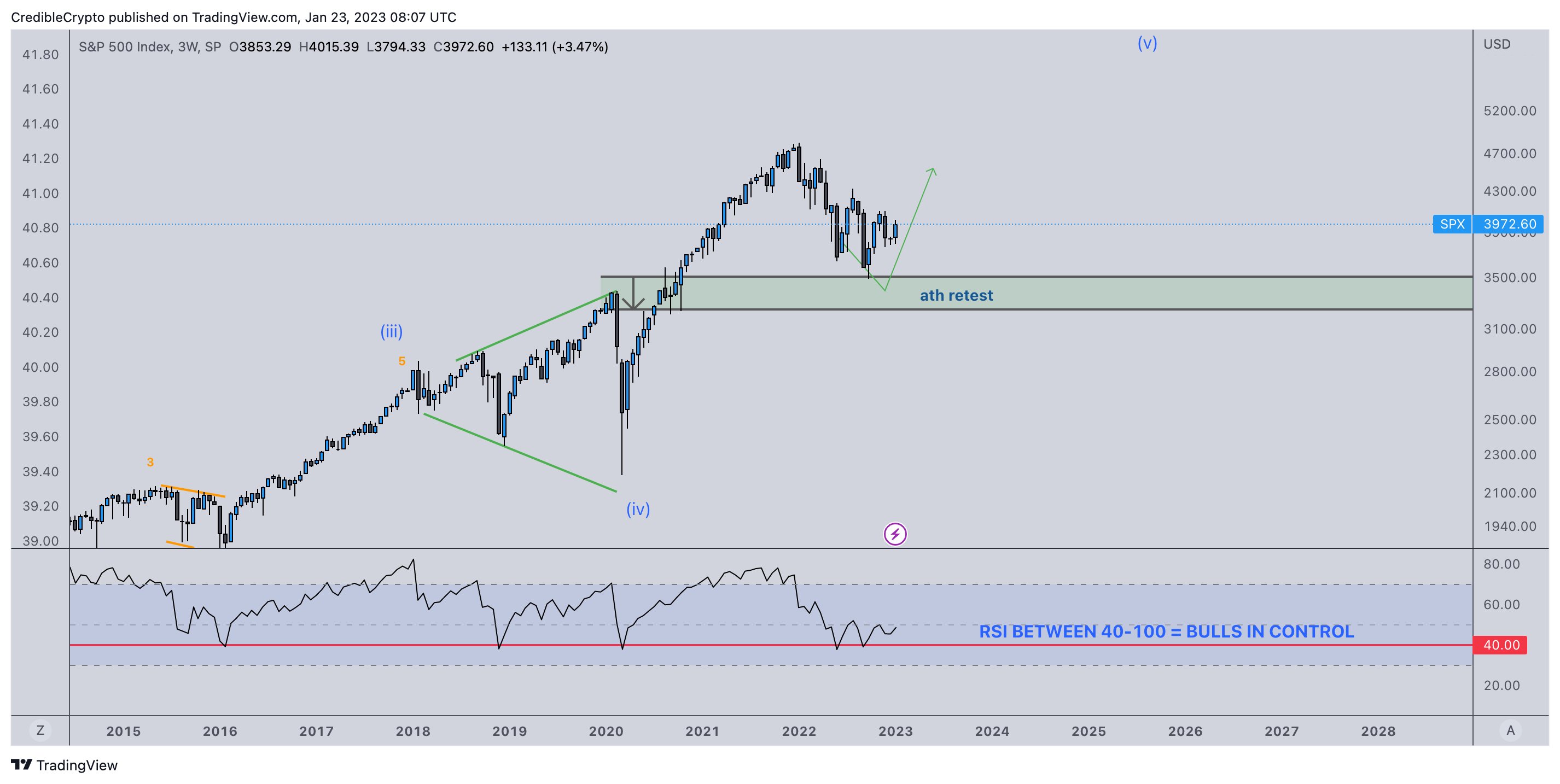
The last week of the month meanwhile contains various potential short-term market triggers in the form of U.S. macro data releases.
These include GDP growth on Jan. 26 and the Personal Consumption Expenditures (PCE) index on Jan. 27.
DXY swoons as support nowhere to be seen
On a related macro note, special attention arguably deserves to be given to the fate of the U.S. dollar this week.
As crypto markets rally, dollar strength is crashing, swiftly losing ground won during its surge to twenty-year highs last year.
The U.S. dollar index (DXY) is typically inversely correlated to risk asset performance, and Bitcoin has shown itself to be particularly sensitive to major moves.
Currently, DXY is trading at around 101.7, having tested 101.5 — more than six-month lows — for a second time this week. After losing it as support at the end of November, the index’s 200-day moving average has acted as resistance since.
“Don’t need much else to tell you what happens next The biggest short squeeze markets have ever seen is upon us,” entrepreneur and crypto commentator “Coosh” Alemzadeh thus declared alongside a chart comparing DXY to Bitcoin and Nasdaq performance at the weekend.
The dollar’s decline versus Chinese bonds also caught the attention of popular analyst TechDev, who showed that impulse moves on Bitcoin top out within a year of a key level being breeched on Chinese ten-year bonds.
“New multi-month lows for the U.S. Dollar Index DXY, after getting rejected perfectly on the horizontal support/resistance range & the 200 day moving average cloud,” Caleb Franzen, Senior market analyst at Cubic Analytics, added.
“That rejection was the moment I realized & accepted that momentum was biased to the downside.”
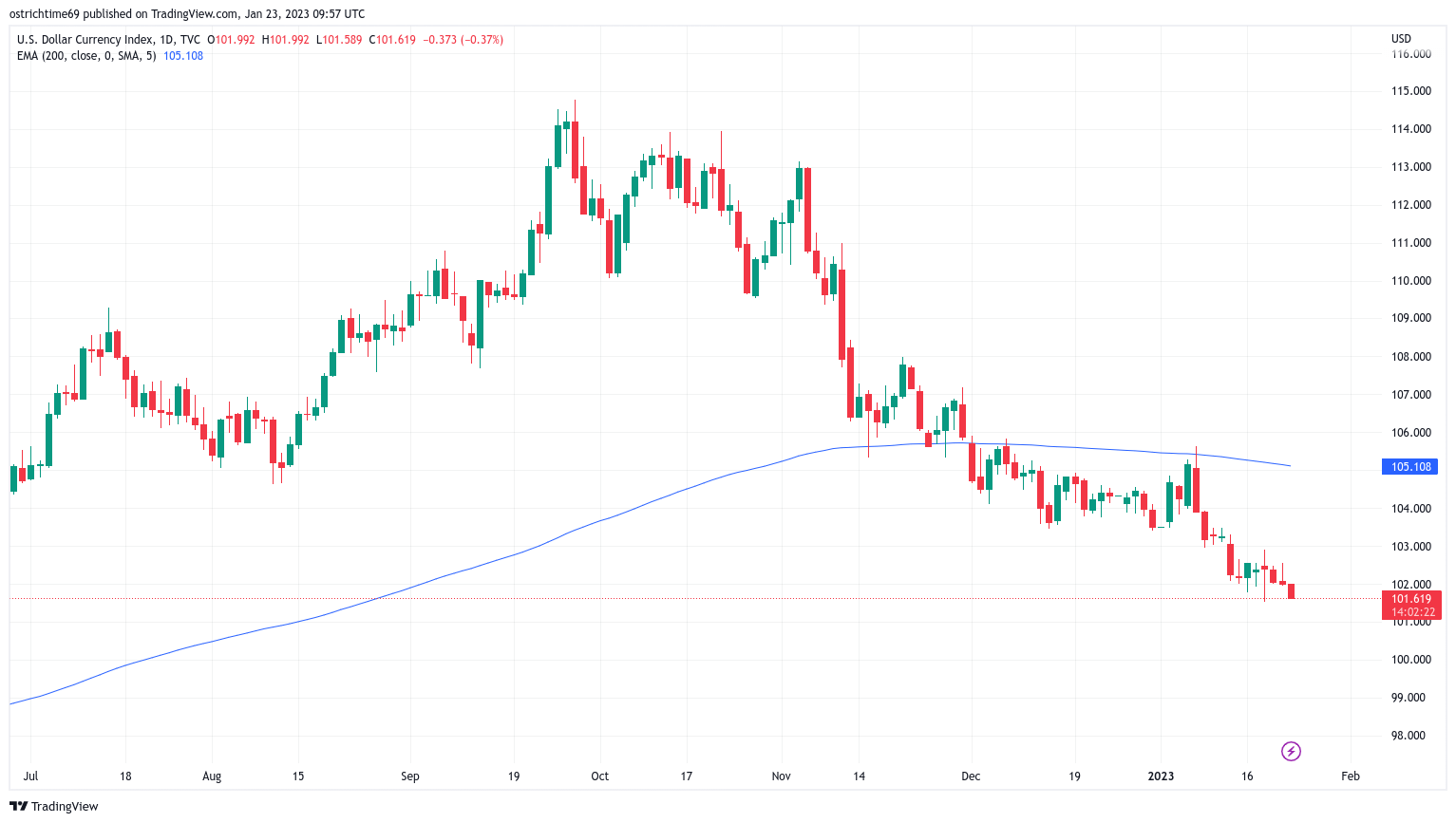
On-chain metrics emerge from the abyss
Bitcoin really is in the midst of a renaissance, on-chain data is concluding.
Compiled by analytics firm Glassnode, multiple classic indicators of Bitcoin market health are now exiting their capitulation zones.
These include — perhaps unsurprisingly given the 40% upside move this month — the amount of the BTC supply held at a profit and loss.
Net unrealized profit/loss (NUPL) is now out of its lowest boundary and heading towards better profitability, despite notably not dipping as low as during the pits of prior bear markets.
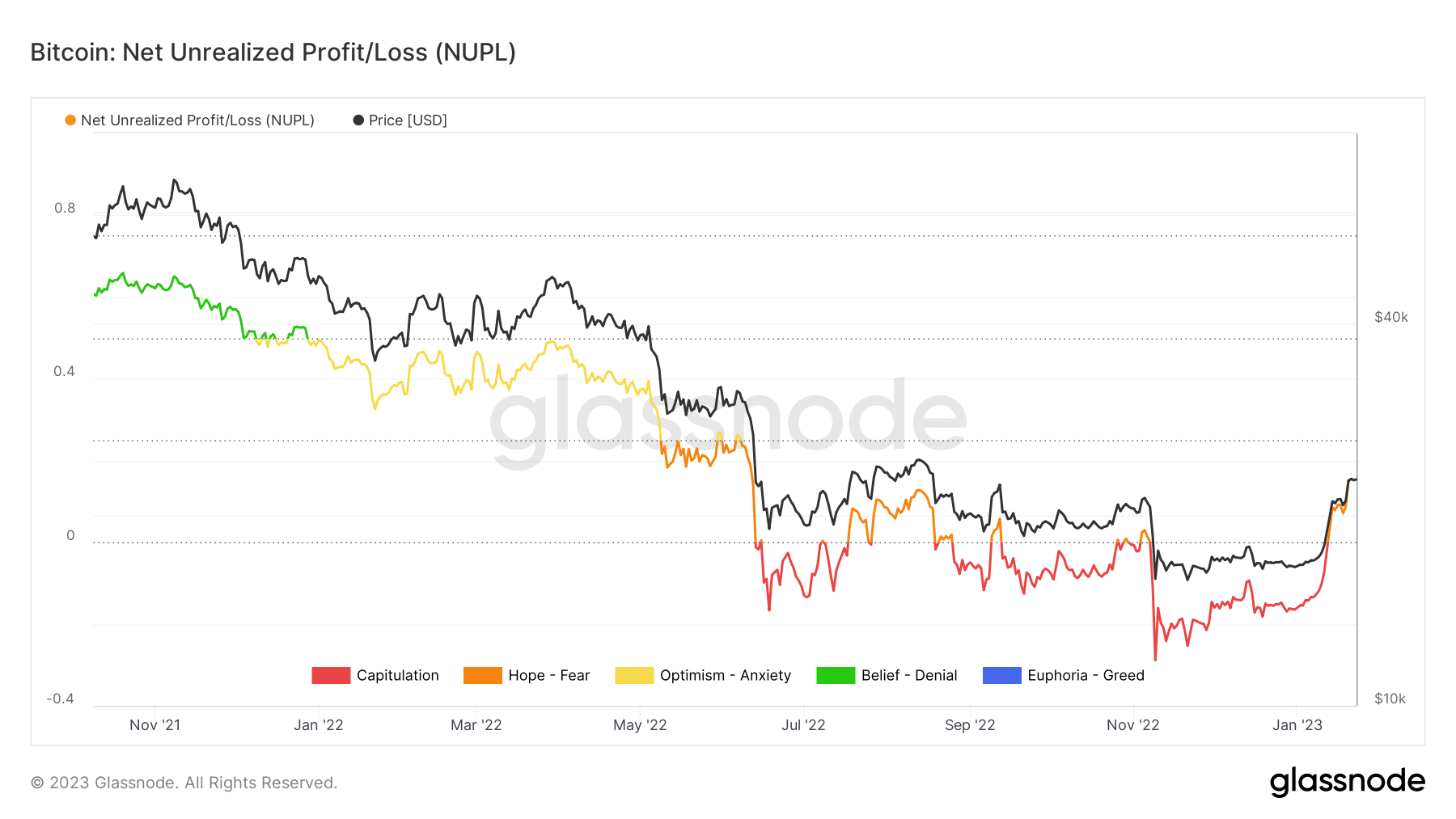
As Glassnode confirms, this applies equality to short-term holder (STH) and long-term holder (LTH) NUPL. The two classes of Bitcoin investor are described as entities holding coins for less than or more than 155 days, respectively.
Similarly bullish is Bitcoin’s market value to realized value Z-score (MVRV-Z), which measures “the ratio between the difference of market cap and realized cap, and the standard deviation of all historical market cap data, i.e. (market cap – realized cap) / std(market cap),” or “when Bitcoin is over/undervalued relative to its ‘fair value.’” as Glassnode explains.
MVRV-Z has now left its green “undervalued” zone for the first time since a brief spike in early November, also marking its first such move since the FTX debacle.
“MVRV Z-Score just dragged itself out of the green accumulation zone,” Philip Swift, co-founder of trading suite Decentrader, confirmed last week.
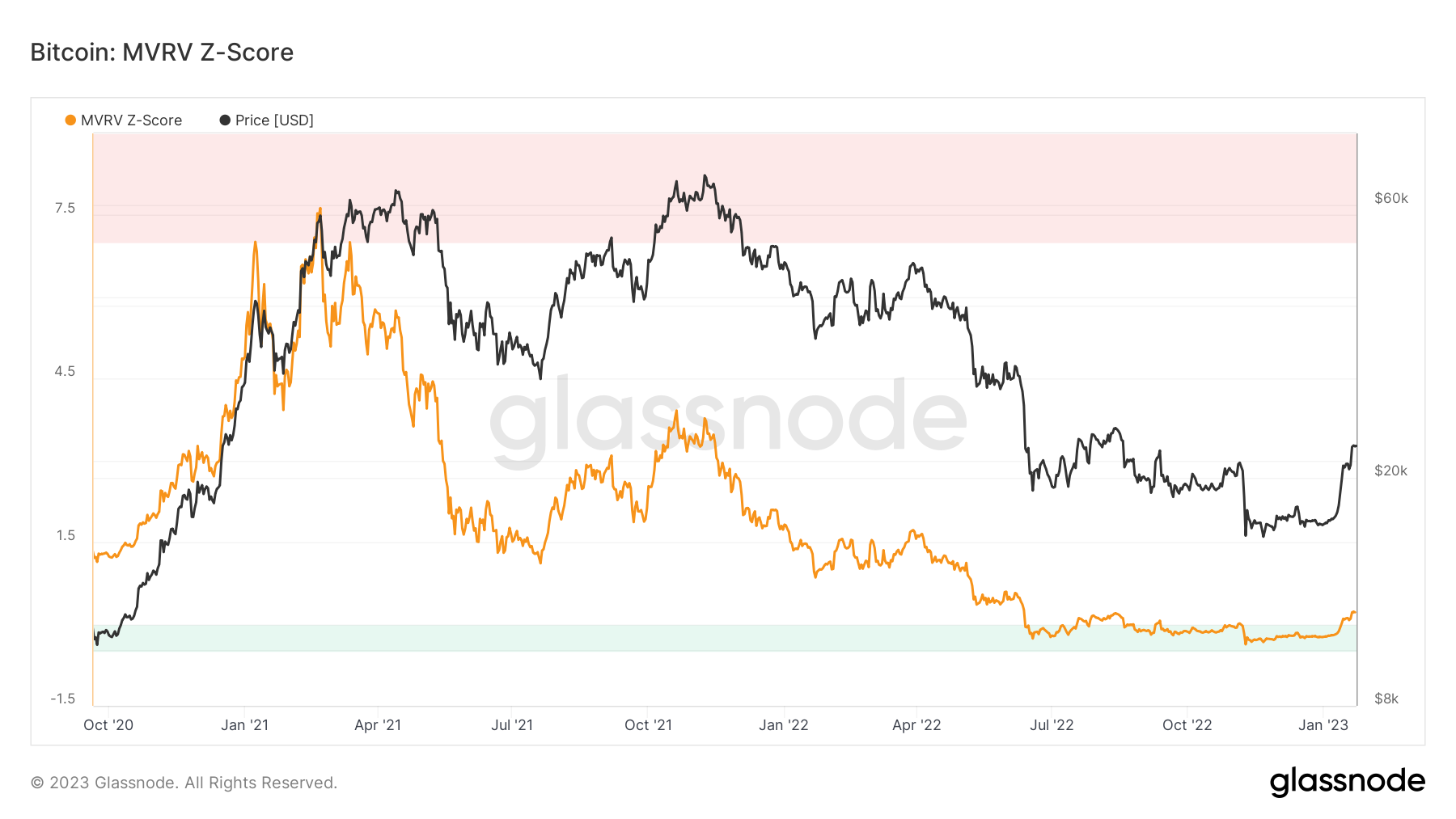
Bitcoin mining hash rate, difficulty at all-time highs
It is already time for another Bitcoin network difficulty adjustment, and this week should preserve existing all-time highs.
Related: Bitcoin due new ‘big rally’ as RSI copies 2018 bear market recovery
According to estimates from BTC.com, difficulty will edge up by approximately 0.5% in six days’ time.
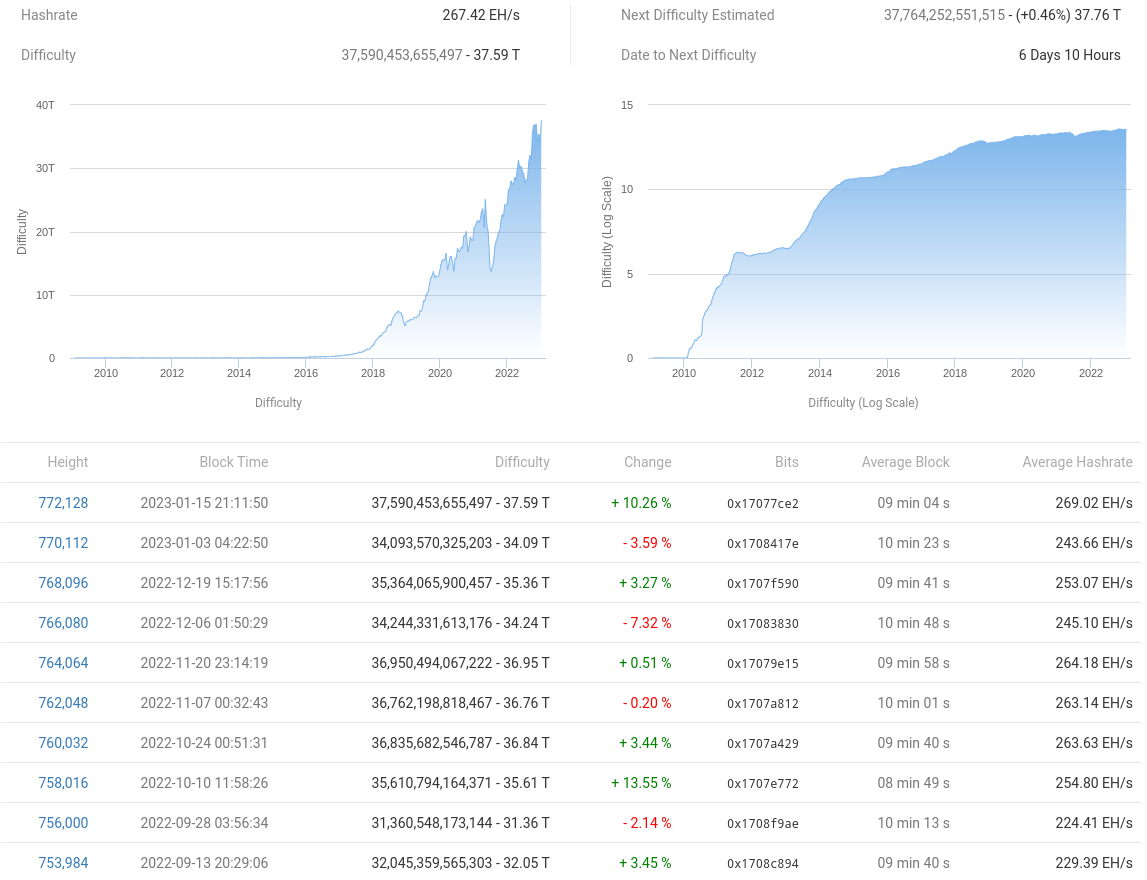
This will add an incremental cherry on the cake to a mining sector already in the midst of major flux. Despite recent low prices, competition among miners has surged this month, adding pressure to those unable to keep costs to a minimum.
Glassnode additionally shows that versus thirty days ago, miners on aggregate hold less BTC. It was at that time that price gains began to materialize.
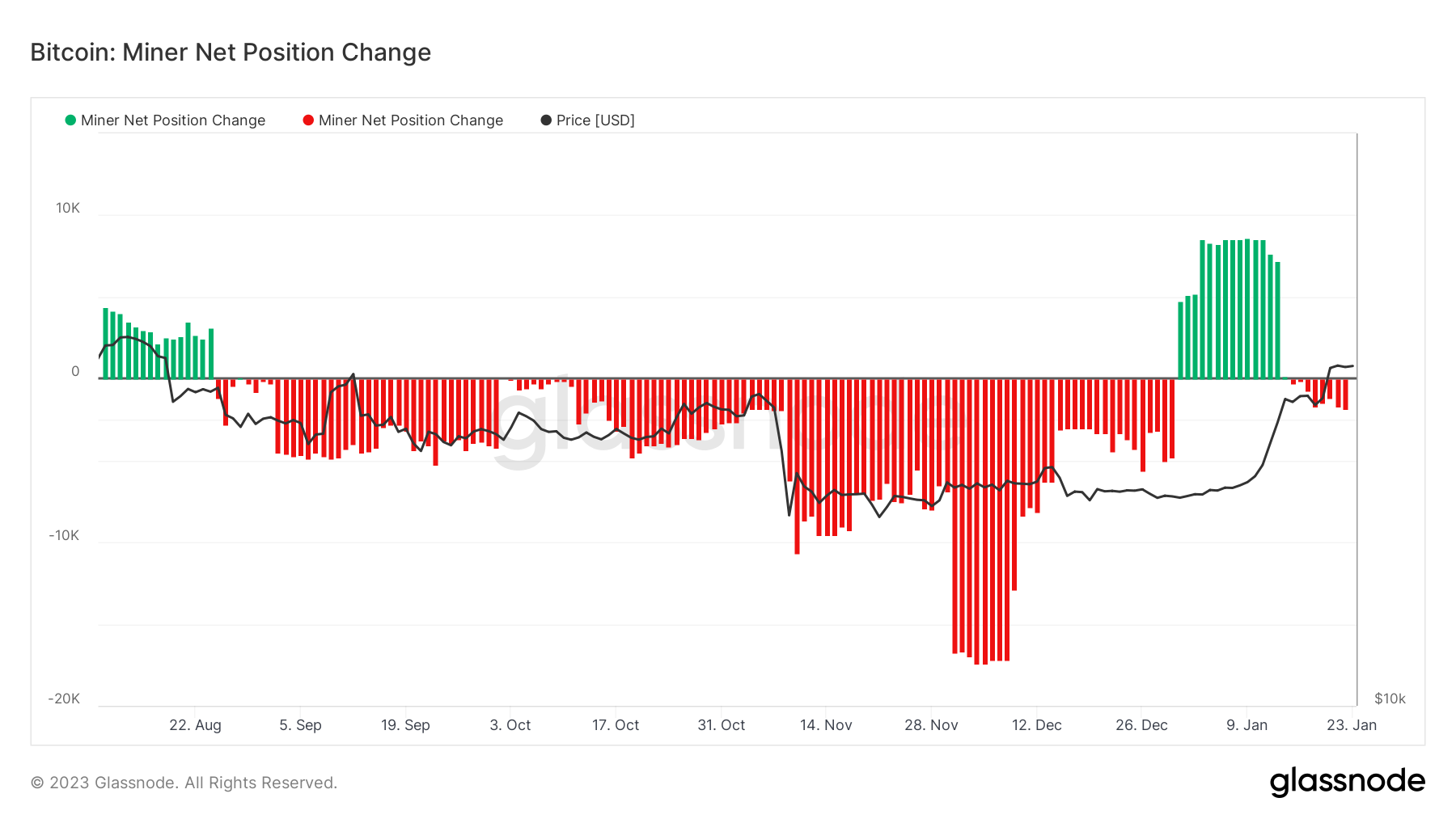
Raw data from MiningPoolStats meanwhile puts Bitcoin’s hash rate — an estimate of processing power dedicated to mining — also at new all-time highs.
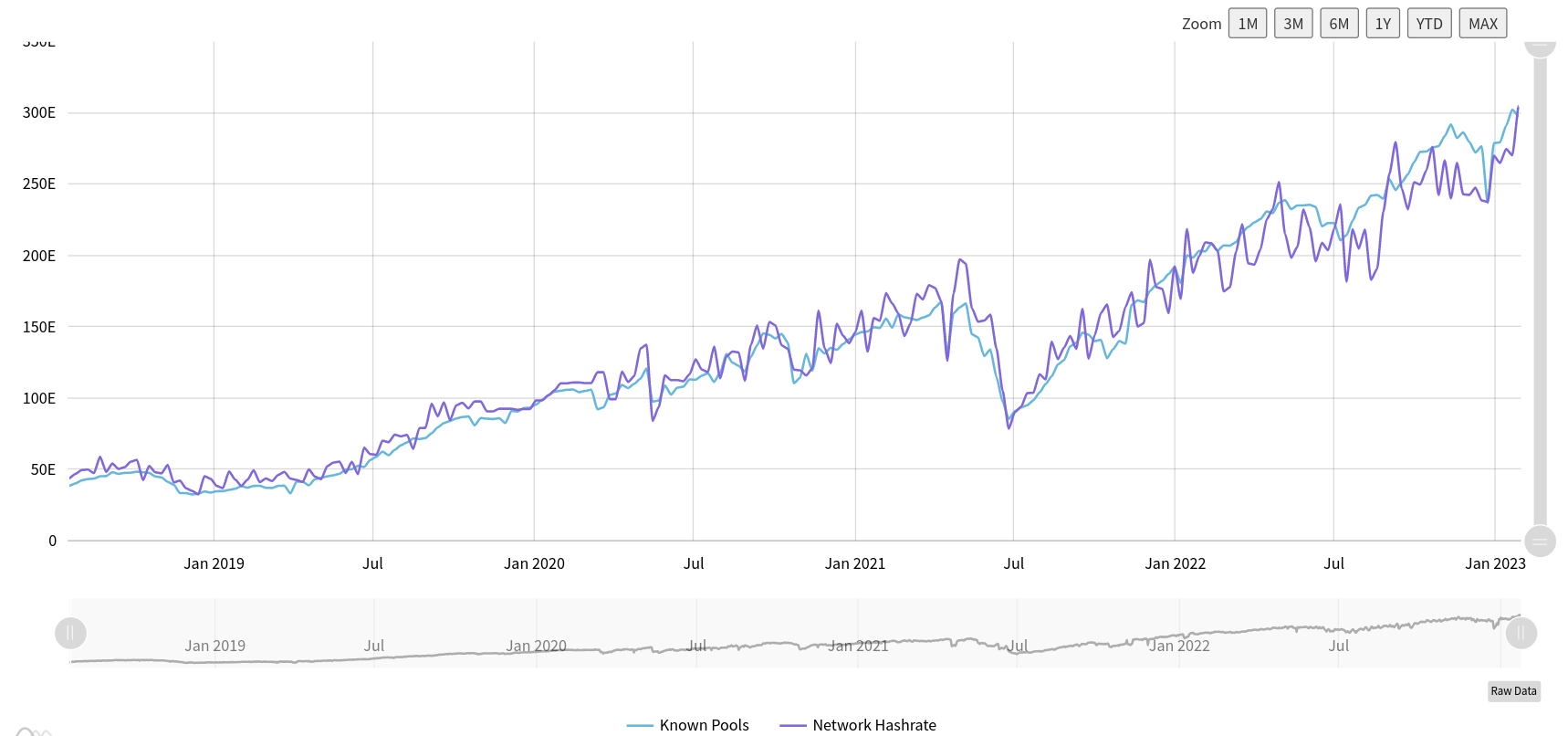
The views, thoughts and opinions expressed here are the authors’ alone and do not necessarily reflect or represent the views and opinions of Cointelegraph.



